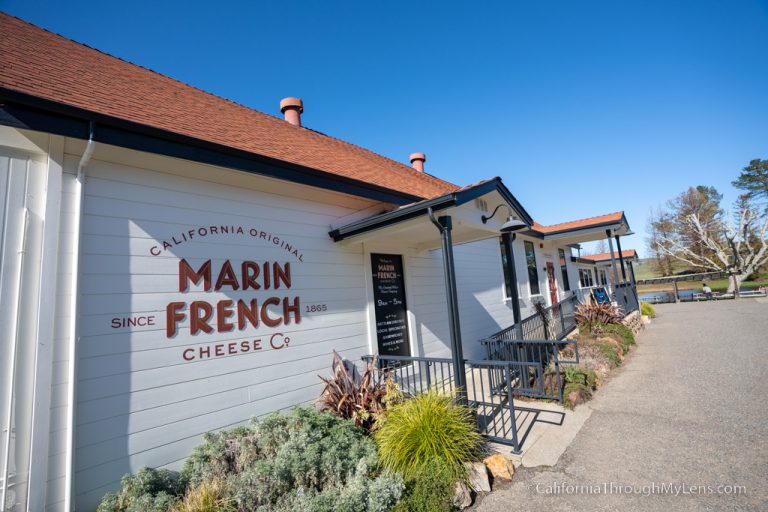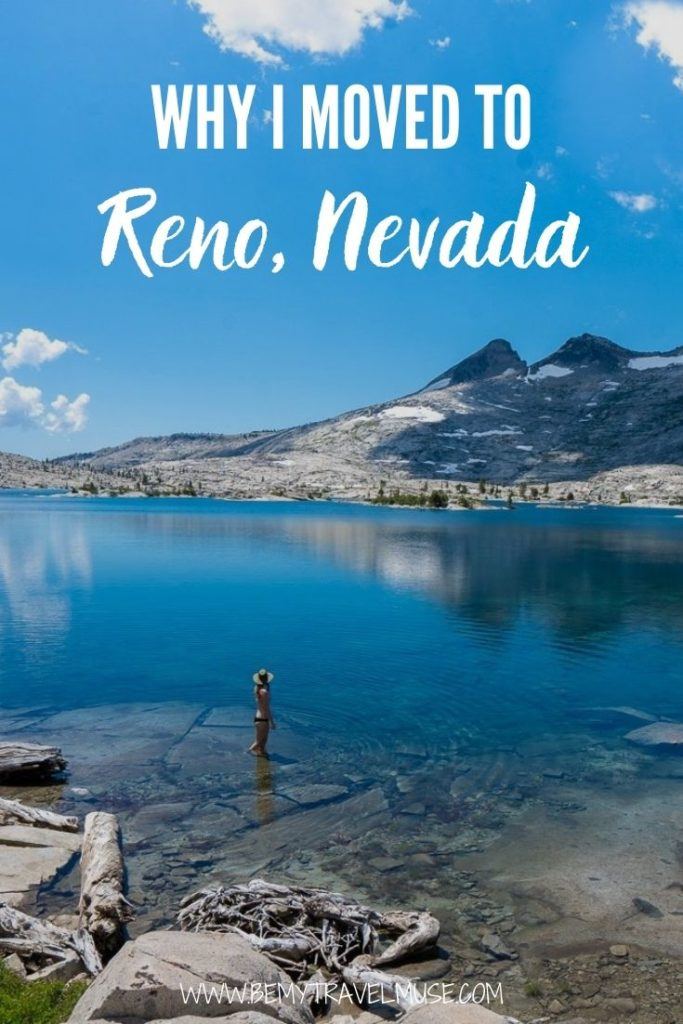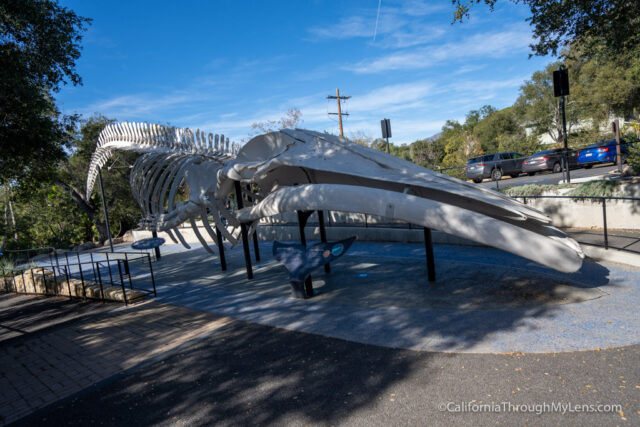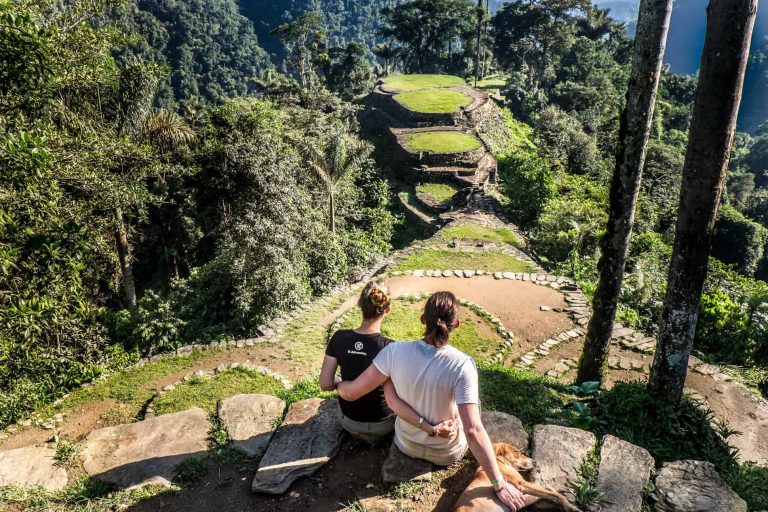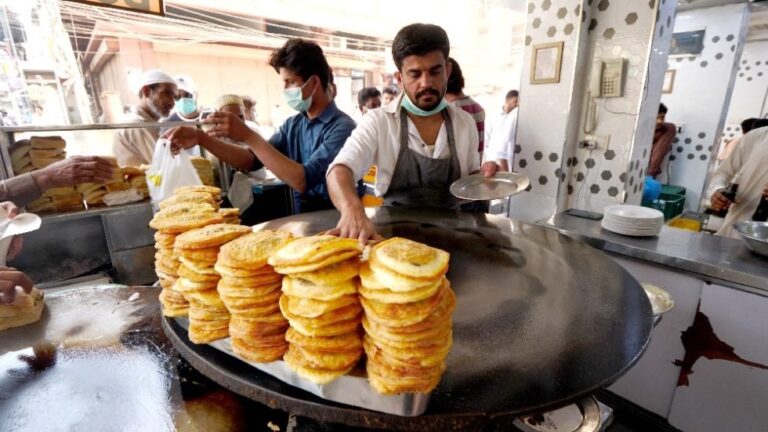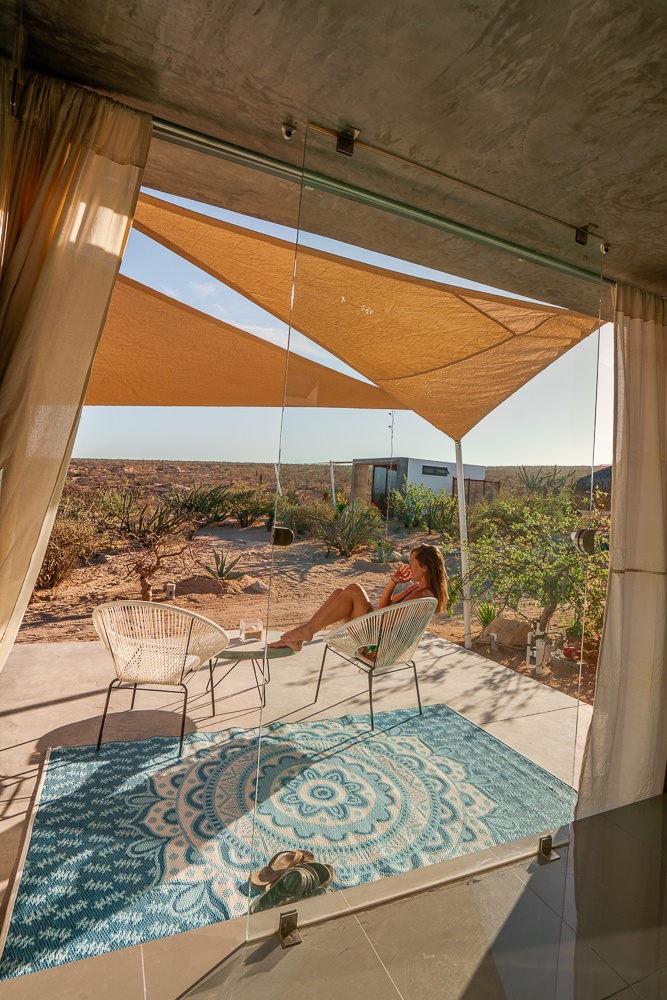The Khamsum Yulley Namgyal Chorten is a gorgeous structure with breathtaking architecture. You can also find colorful paintings on its walls, as well as statues of deities on each floor inside. Unfortunately, taking photos or video of them is strictly forbidden. You can, however, take photos and film on the roof of the monastery, which offers unrivaled views of Punakha Valley. The view is breathtaking and will allow you to see the surrounding area from a different perspective!
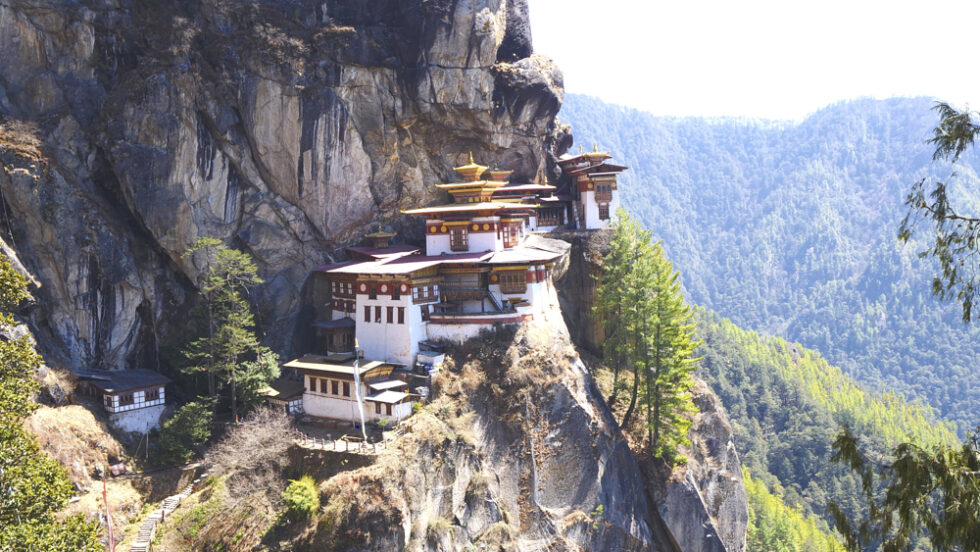
The monastery is home to a large prayer wheel, as well as 108 smaller wheels. Here, you may also get to witness young children training to become monks. A child becoming a monk is entirely up to the parents’ wishes. Any child whose parents choose this for them will be a monk for the rest of their life!
Chimi Lhakhang Monastery
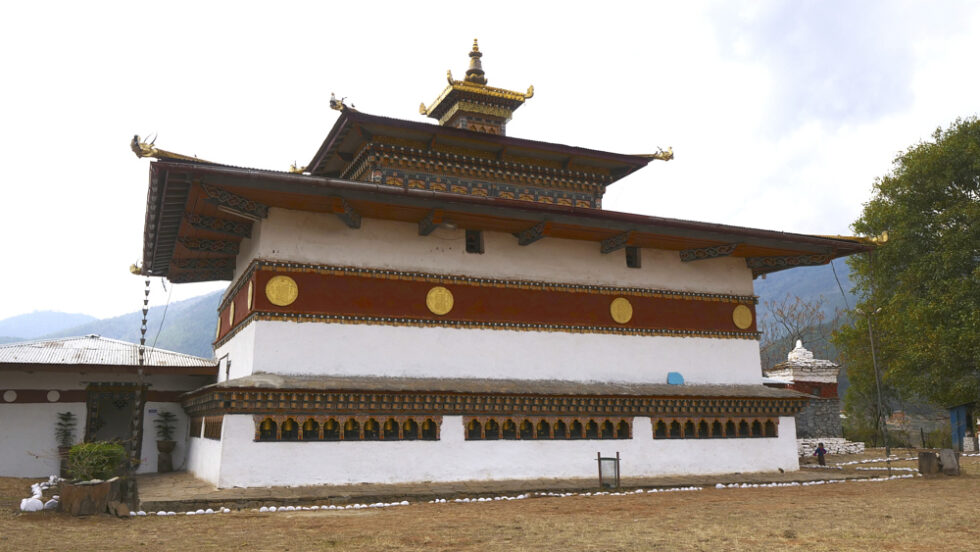
In the city of Punakha, you’ll find a much shorter monastery hike. There, you can take a roughly 40-minute hike to Khamsum Yulley Namgyal Chorten. The mother of the current king, Jigme Khesar Namgyel Wangchuck, built the monastery to protect the kingdom and spread peace and harmony throughout the world. That alone makes it one of the top Buddhist monasteries you must visit in western Bhutan.

You’ll also find dormitories and 108 prayer wheels further along. There is also a steep, narrow stone staircase that will take you to the very top of the monastery. Be sure to heed the nearby signs and stay quiet so as not to disturb the resident monks. At the top of the monastery is the building where the unifier Ngawang Namgyal meditated for over three years. You can also enjoy spectacular views of the entire valley below!
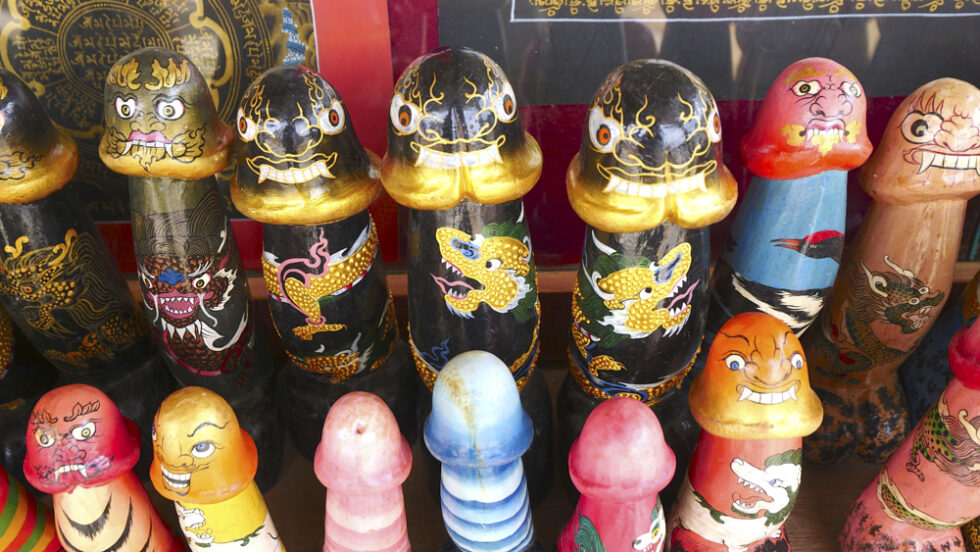
Buddhism first arrived in Bhutan in the 7th century. It arrived with a Tibetan king who extended the Tibetan Empire south into the Indian state of Sikkim and areas that would later become unified under the Kingdom of Bhutan. Many of the nation’s most notable monasteries were built after their unification under a Tibetan lama named Ngawang Namgyal in the early 17th century. These are the 6 monasteries you must visit in Western Bhutan.
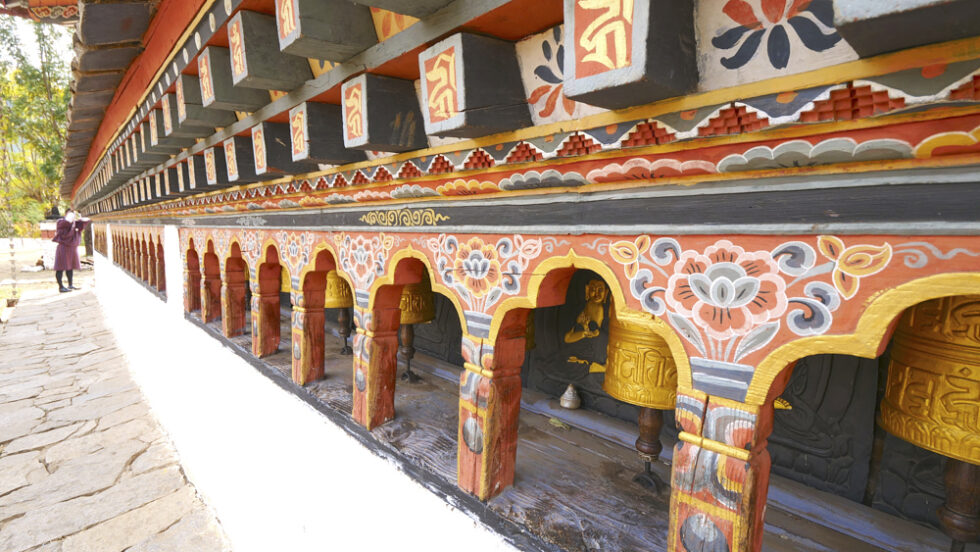
Even if you don’t identify as Buddhist, there is something magical about trekking to the monasteries you must visit in western Bhutan. Each one has its own look, feel, and charm. I walked away from each feeling as serene and at peace as I’ve ever felt in my life. Add in the remarkable Bhutanese architecture and the way the monasteries show off nature at its best, and you have a recipe for beautiful, life-changing experiences. Book a trip to Bhutan today to explore these gorgeous monasteries for yourself!
Check out the Top 10 Things You Must See and Do in Punakha, Bhutan
Changangkha Lhakhang Monastery
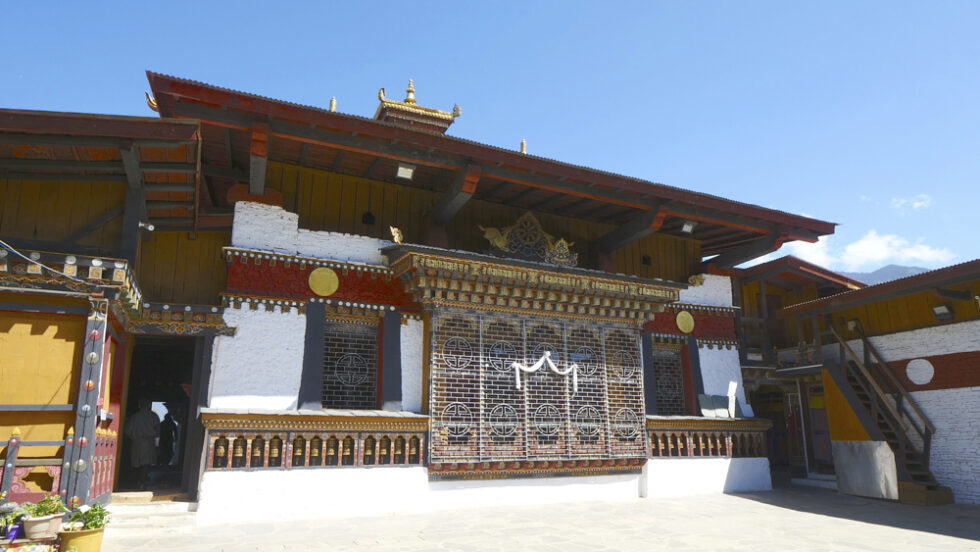
At the northern end of the Thimphu Valley, a little over nine miles north of Thimphu, is Chagri Dorjeden Monastery. This gorgeous, 17th-century monastery is nestled in the Valley of the Tigers, among the forested mountains of Jigme Dorji National Park. Because it’s located at a higher elevation, I recommend wearing a heavy sweater or a warm jacket on this hike.
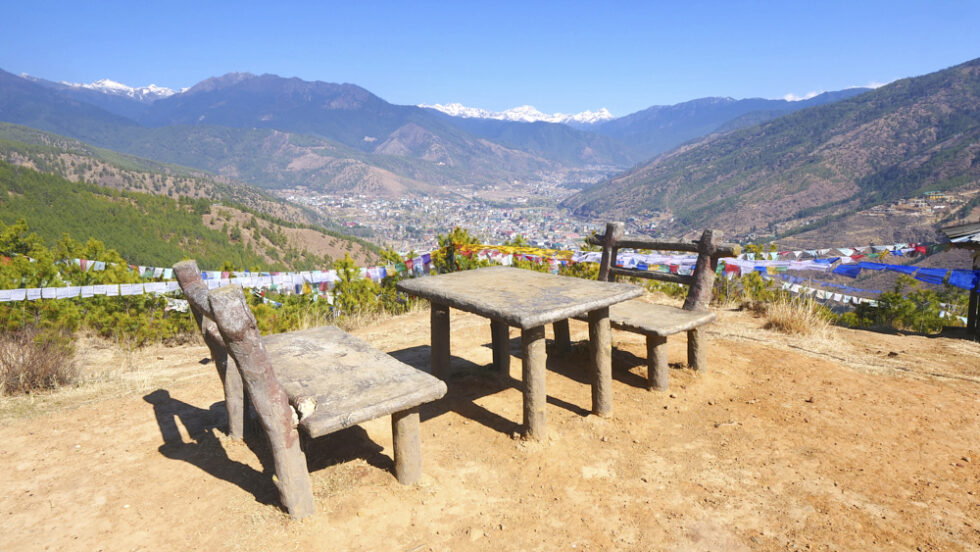
Across the village (you’ll have to walk a path between rice paddy fields) is Chimi Lhakhang Monastery. Nearby, an eccentric Buddhist master called the Divine Madman is said to have used his penis to defeat two demons who had arrived in town.
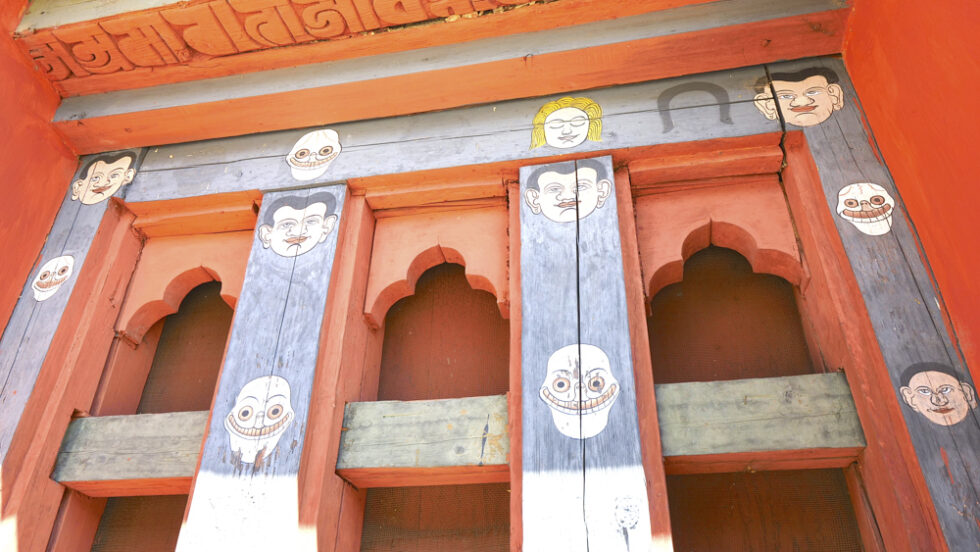
Though the hike is relatively short, I still suggest being in moderately good shape if you’d like to attempt it. The hike will require you to cross the suspension bridge spanning the Mo Chhu River. From there, you’ll continue past rice paddies, chili fields, a spring, and a prayer wheel.
Check out the 18 Things You Must See and Do in Thimphu, Bhutan
Kahmsum Yulley Namgyal Chorten Monastery
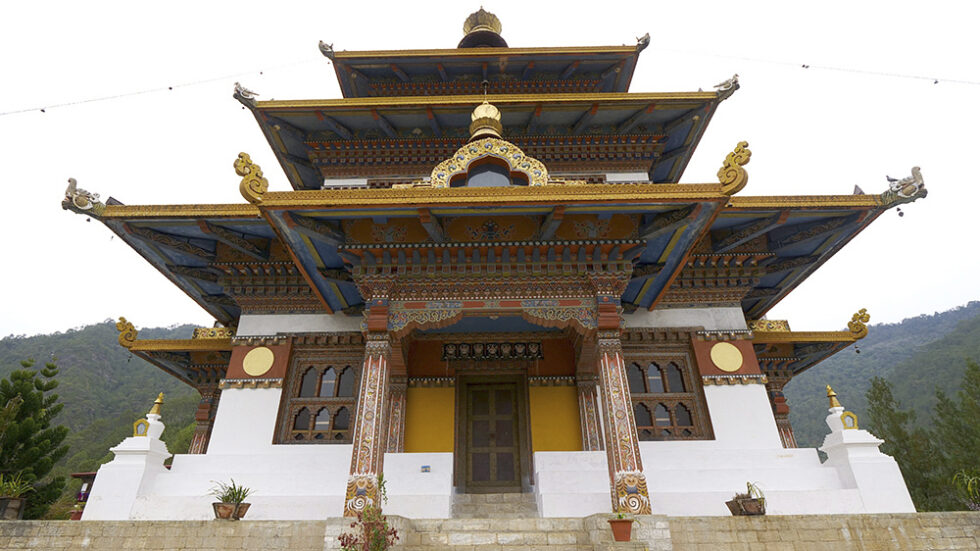
The roughly 90-minute hike will take you through the forest and past a picnic area with numerous prayer flags. Built by a Tibetan man named Lama Phajo Drukgom Shigpo, Changangkha Lhakhang Monastery is where parents bring their newborns to get named. Family names don’t really exist in Bhutan, so names come from the monks in the monastery. There, children also receive blessings from Tamdrin, a Buddhist god of protection.
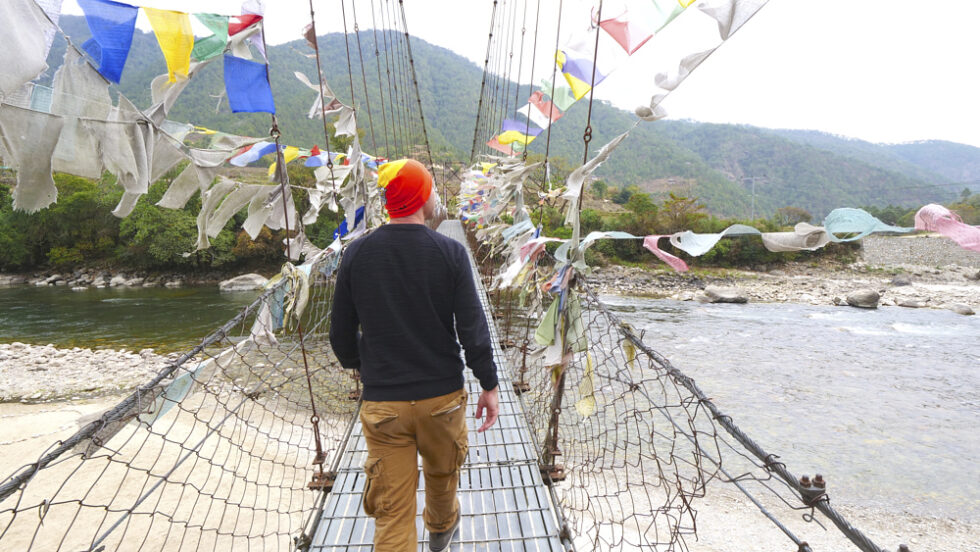
Of course, no list of the Buddhist monasteries you must visit in western Bhutan is complete without Paro Taktsang. Better known as Tiger’s Nest, this gorgeous, 17th-century complex is Bhutan’s top tourist attraction. It’s located on the side of a cliff, high above the picturesque Paro Valley. The monastery is well-known not only for its location, but for the grueling hike it takes to get there. It’s also only about six miles north of Paro, the city you’ll fly into if you’re traveling to Bhutan by plane.
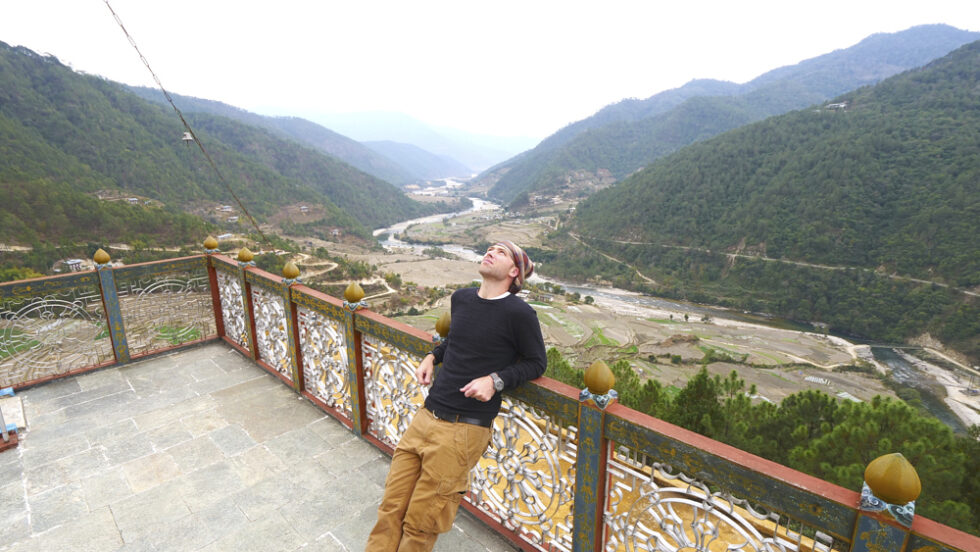
When you arrive, you may hear music playing. Be quiet and respectful, as prayers may also be in session. Also remember to remove your shoes. Finally, remember that no video or photography is allowed inside the shrine or holy areas of the monastery.
Check out the Things to See, Do, and Eat in Haa Valley, Bhutan
Chagri Dorjeden Monastery
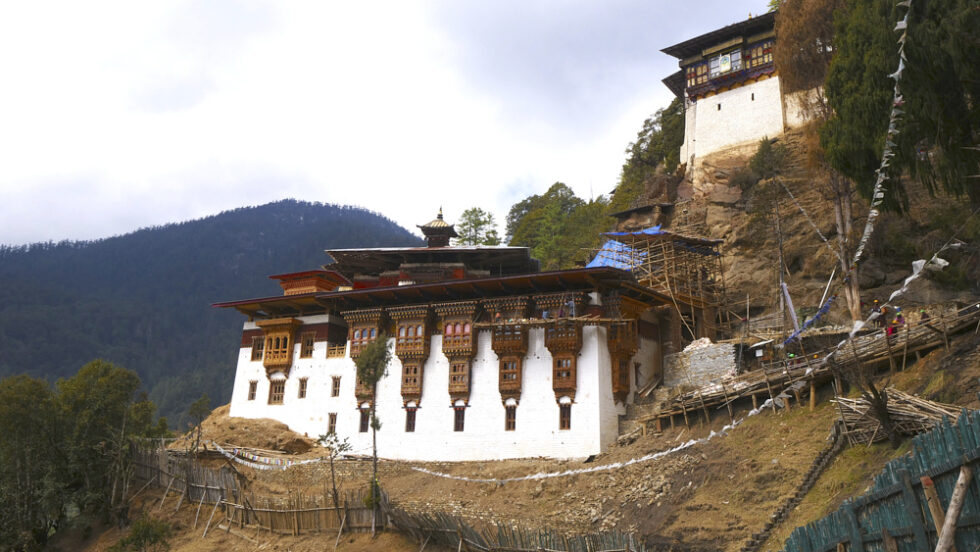
In the Eastern Himalayas of South Asia between Tibet and northeast India, is the Kingdom of Bhutan. This small country is largely unknown to Westerners, but Bhutan is one of the most culturally unique nations on Earth. It has no history of colonization, and therefore built a national identity without influences from foreign invaders. Bhutan’s national identity is centered around Buddhism, which can be explored throughout the country. It’s especially present in the Buddhist monasteries you must visit in western Bhutan.
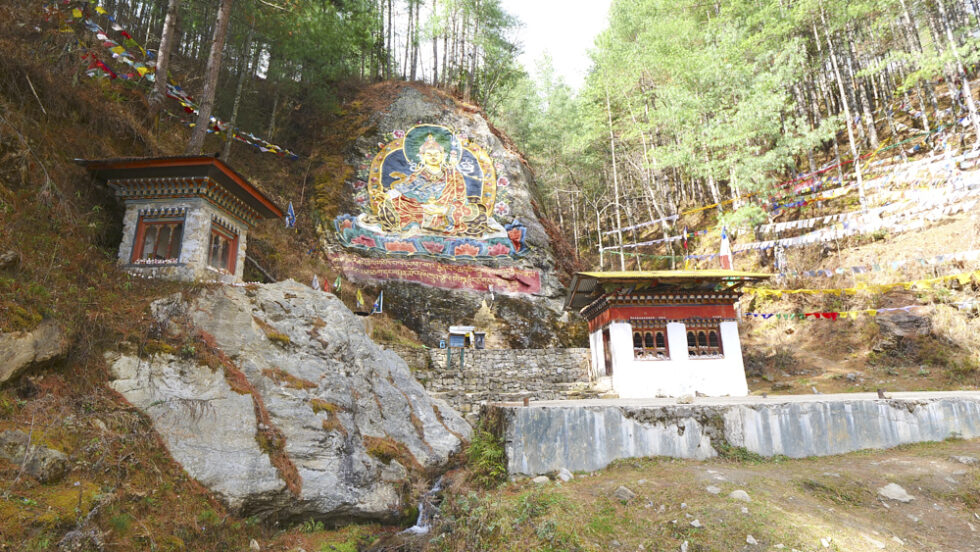
Built around a cave where an 8th-century Buddhist master meditated for four months, Tiger’s Nest resides at the end of a steep, treacherous trail that takes roughly three hours to follow. At the midway point is the Taktsang Café, where you can rest and grab a bite to eat. From there, the hike continues through the forest and along a narrow path clinging to the side of the mountain. Thankfully, there are guardrails!
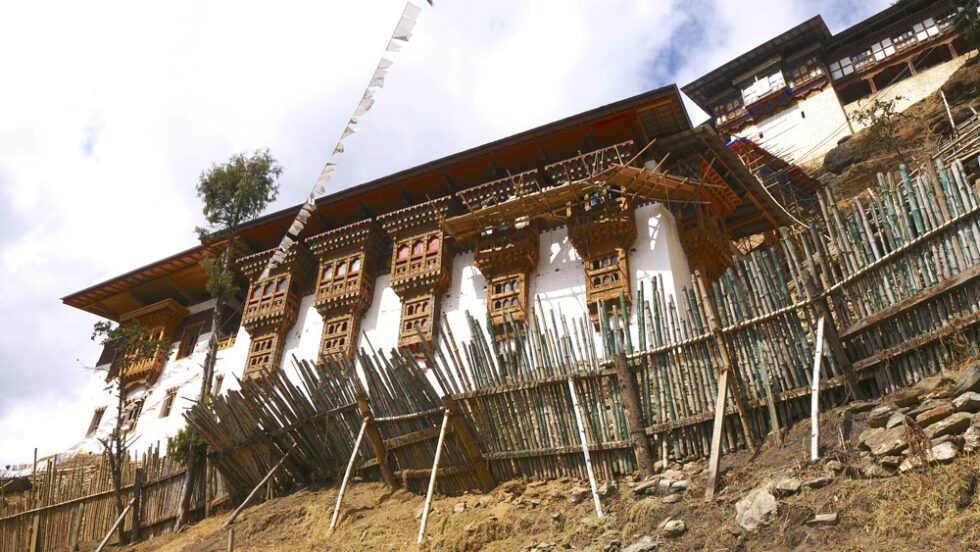
It’s the hardest hike I’ve ever done in my life, but as I attempted it during a major time crunch (more on that here), I managed the hike in about 90 minutes. However brutal the hike is, reaching Tiger’s Nest is a reward in itself.
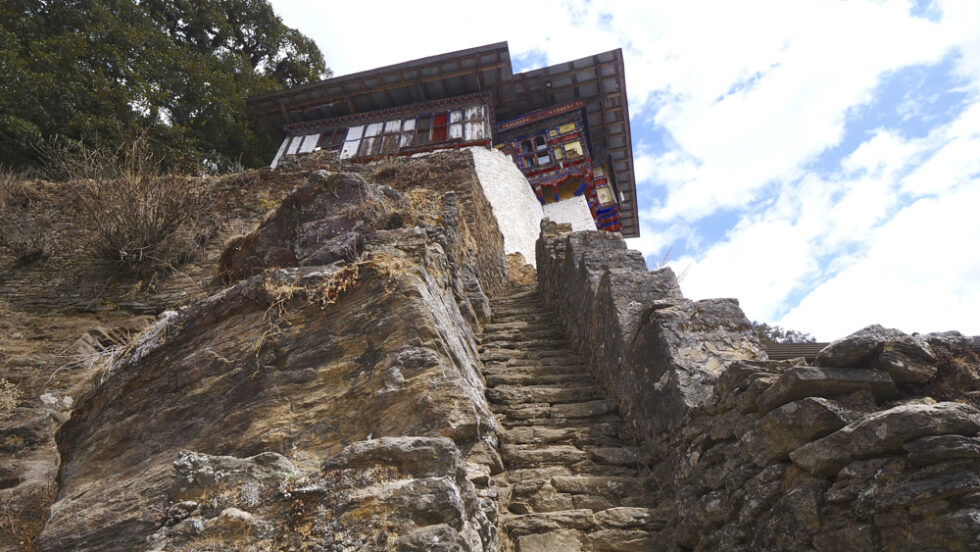
You’ll have to stow your belongings at the security check. That includes cameras and phones, as filming and photography are prohibited inside the complex. Inside, it’s sacred and peaceful, like something out of a dream. Inside are multiple shrines dedicated to the second Buddha, Guru Padmasambhava. You’ll also have the opportunity to light a butter lamp and say a prayer. It’s honestly one of the most remarkable experiences you can have in Bhutan and will surely stick with you forever.
Check out the Top 5 Things to Do in Paro, Bhutan
Paro Taktsang (Tiger’s Nest Monastery)

Huge thanks to my friends Tsheten and Nidup from MyBhutan for showing me around their beautiful country!
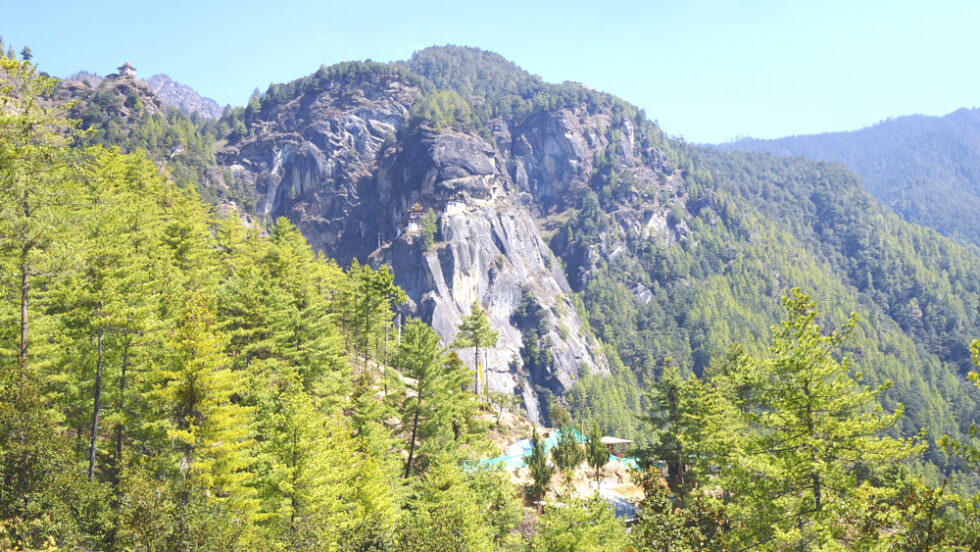
Those who attempt this hike need to be in moderate to good shape, as it’s pretty intense. You will follow a steep, rocky path up a mountain to reach the monastery. Chagri Dorjeden Monastery actually clings to the side of the mountain, much like another, much more famous monastery near Paro. Parts of the path are nearly vertical, so be sure to wear your best hiking boots!
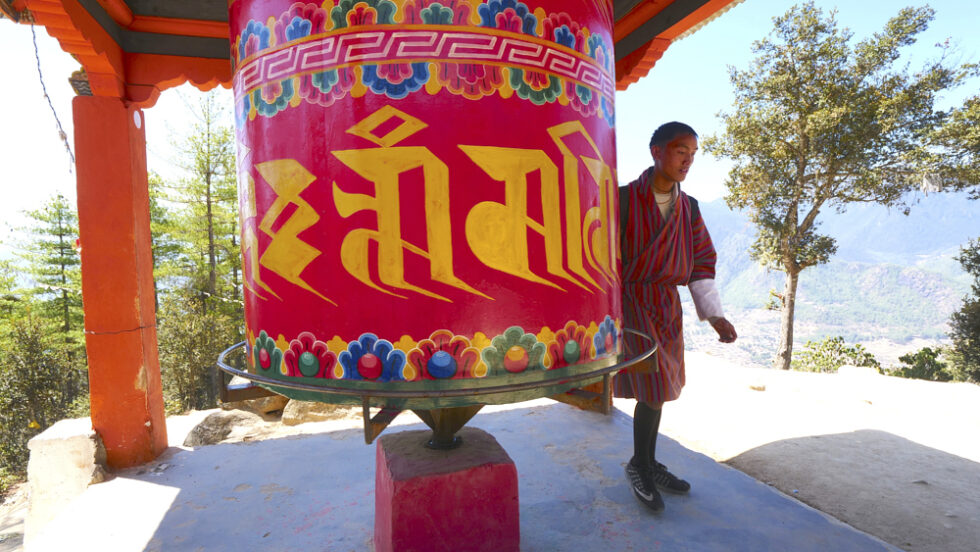
Inside the monastery, you’ll find gorgeous murals and a shrine in the central courtyard. This courtyard is dedicated to a mermaid-like spirit called a tshomen. While you’re there, meet with the resident astrologer, who will use divination charts to recommend certain prayer flags for you.
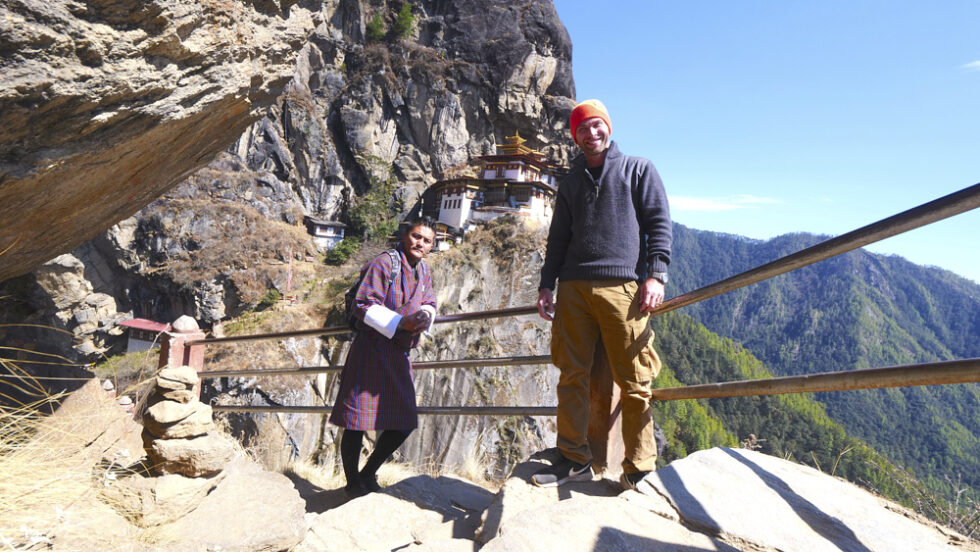
If you’re visiting the city of Thimphu and are in at least moderately good shape, you may want to pay a visit to Changangkha Lhakhang Monastery. The 12th-century monastery stands on a ridge high above the city, accessible by following a narrow bike and trekking path through Kuenselphodrang Nature Park. The incline is gradual, but be careful, as there are sheer drops on the right side of the path.
Conclusion
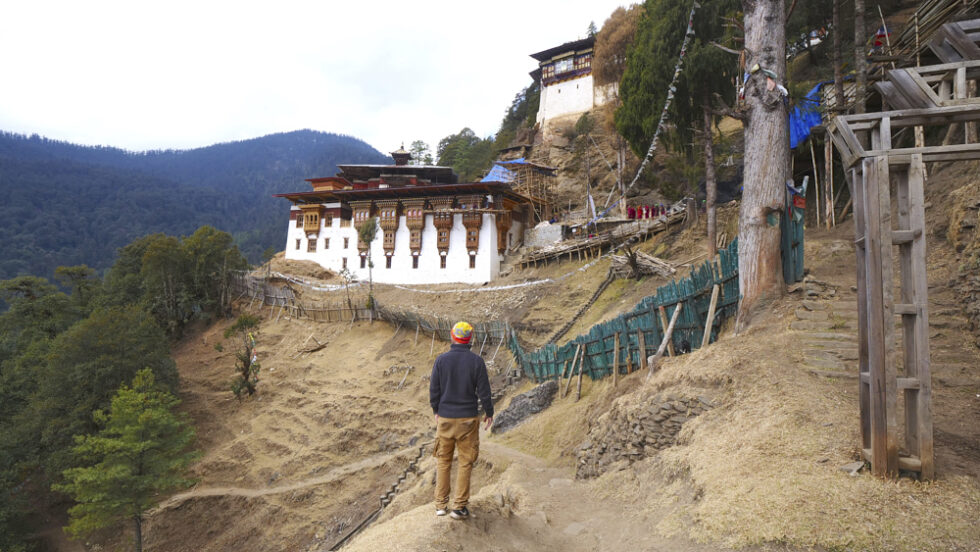
If you take a roughly fifty-minute car ride south from the ancient capital city of Punakha, you’ll come across a village called Sopsokha. This village is quite unique, as cartoonish phalluses have been painted on nearly every structure. Local shops also sell elaborate decorative penises carved from wood. They are fertility symbols, which locals believe deter evil spirits.
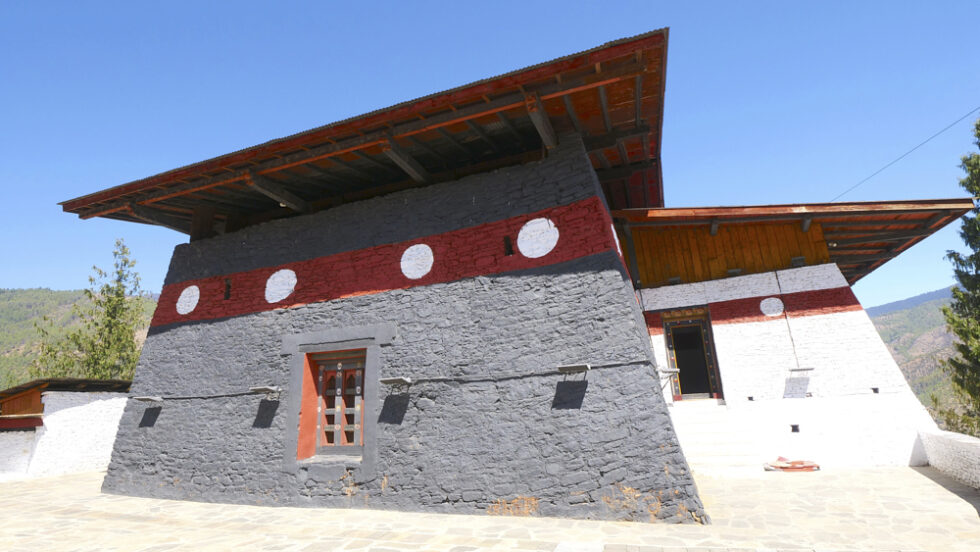
The halfway point of the roughly 45-to-60-minute hike is a stupa where you can rest. From there, you’ll continue past different species of goats until you reach the monastery. There, monks who have completed nine years of higher studies meditate for three years, three months, three weeks, and three days.
NOTE: If you need to check the visa requirements of a particular country, click here. To apply for a visa, find up-to-date visa information for different countries, and calculate the cost of a particular visa, click here!
